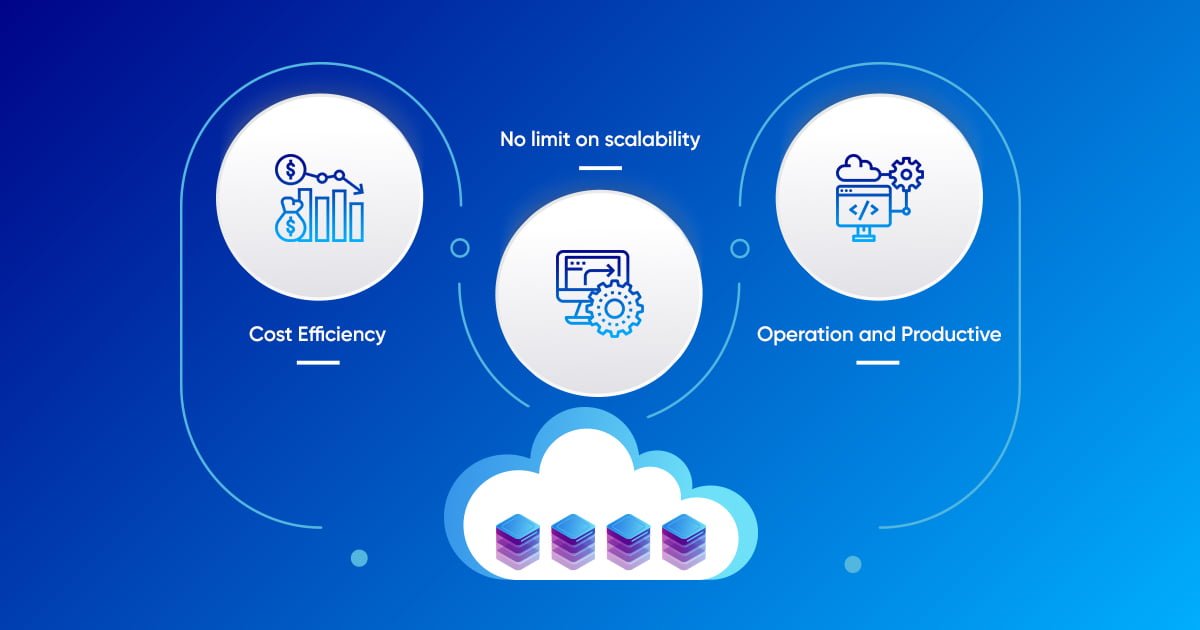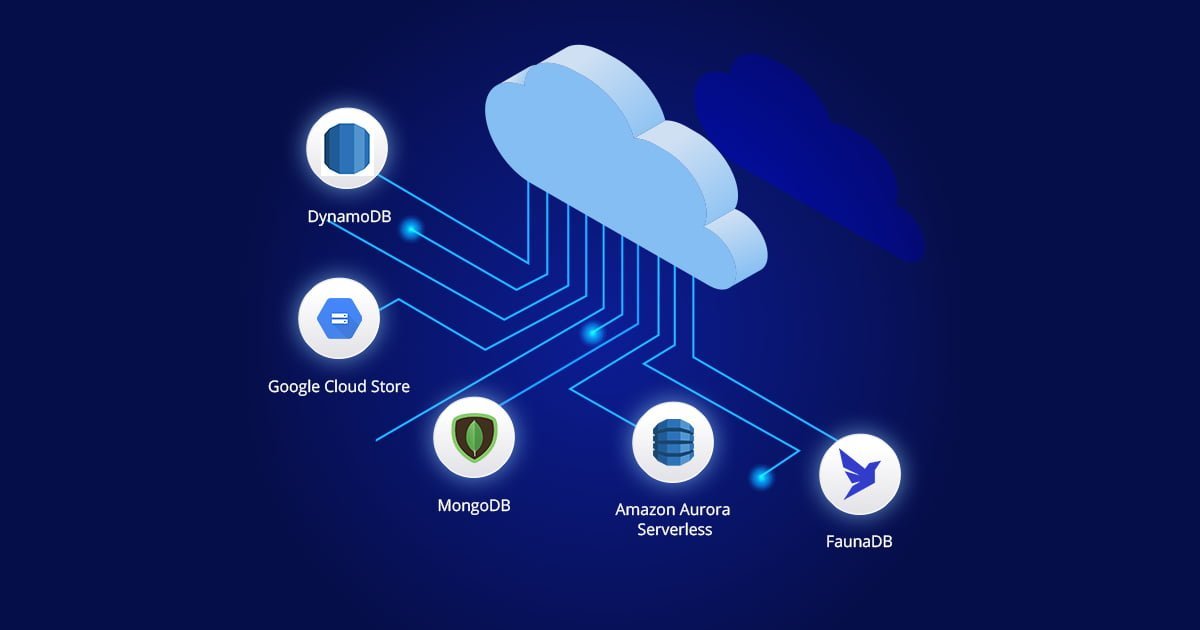Pricing for Serverless Database
Advantages of Serverless Database

Cost Efficiency
Setting up a fixed number of servers usually takes a lot of time for underutilization and is much more expensive than using a serverless database. Furthermore, it is not cost-efficient but also be more budget-friendly than provisioning an autoscaling group because of the more efficient bin-packing of the machine resources. Most importantly, there are no operating system costs which include the installations, maintenance, support, licensing, and patching. Its charges are totally dependent upon the used time and memory allocated on running your code.
No Limit on Scalability
Due to automation, all functions of the application will be able to work in parallel and with data consistency. As well as a small developer team not required to set a high capacity server.
Operation and Productive
One of the most fruitful advantages of a serverless computing model is that companies will see developer efficiency. Designers are not required to invest energy in managing and operating a framework. Lots of surveys conducted with engineers are spending somewhere in the range of around two-fifth of their time with infrastructure-related works. If developers choose serverless, it’s almost sure that one can solve troubles.
Disadvantages of Serverless Database
Debugginge
Debugging is the biggest problem. It’s directly caused due to architectural complexity, which is one of the biggest challenges.
Cost Estimation is also the Greatest Challenge
It totally depends on the actual usage of the application, so it is very difficult to estimate before usage. In most cases, Serverless architecture is very cost-effective; however, it can become more expensive than creating and maintaining our own server.
Vendor Lock-in
Vendor lock-in ended up is also a challenge, which makes a lot of sense. There is enough difference between the serverless providers, that migrating from one to another isn’t worth the cost most of the time. It’s difficult to change the serverless provider. It’s also next to impossible to correctly guess the time and effort it’d take.
Different Serverless Databases

Google Cloud Store
Google Cloud Store is a document-oriented store offering a database component of Google App Engine as a standalone service.it is owned by Google which is one of the biggest IT companies in the world. There are two payment options in the Firebase: (1)a fixed plan and (2) a pay-as-you-go plan out of which the user can choose anyone who is more suitable. Firebase also includes a hierarchical database.
FaunaDB
FaunaDB is distributed all over the world, and its technology is based on Twitter. it is the most significant transactional database service.
Amazon Aurora Serverless
Amazon Aurora Serverless was launched at the end of 2017. It comes in two different variants compatible with both MySQL or PostgreSQL, moreover, it is also compatible with other known systems like MariaDB, Oracle, etc. Amazon Aurora serverless database is fully-managed and automatically scales to up to 64 terabytes of database storage.
DynamoDB
It is also an Amazon service. DynamoDB is an entirely managed NoSQL database service able to provide predictable and high-speed performance with smooth scalability. DynamoDB creating database tables is straightforward and you can store and retrieve any amount of data, and it’s also able to manage any level of internet traffic on our application.
MongoDB
MongoDB is open-source and free, published by GNU Affero General Public License. While not being a serverless database MongoDB is still worth mentioning because of their Database as a Service offering called MongoDB Atlas. It is most flexible in storing the data.
Conclusion
The serverless computing revolution is yet new to the IT industry, and it is taking some time for databases to catch up. There are lots of new functions and options which will add in the future. Furthermore, the future of Serverless Databases looks more promising and more preferable. The features of this modern technology have enabled us to concentrate on crucial things such as real-time access, availability, security, and scalability. However, it is not feasible to discard or surpass the usage of the existing database(traditional database) in a short time. Yet, there are limitations in serverless databases that might be overcome in the future.
In order to create a true Platform-as-a-service environment, it is important to understand serverless technology and address them in the upcoming years. We are a true partner to help you set up your serverless database and help you in the cost reduction of the business. Contact us today or get in touch via sending an email at sales@aliansoftware.net.